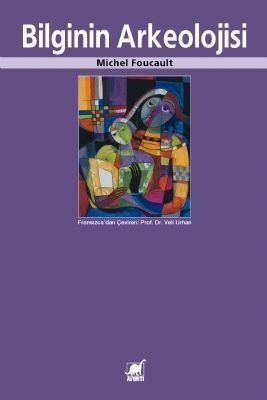
Bilginin Arkeolojisi
Born in 1926 in Poitiers, France, Michel Foucault is a philosopher and a man of action who devoted himself to freedom with both his thoughts and life. Perhaps the most accurate way to understand him is the following expressions he uses in interviews: “The main purpose of life and work is to become what one is not at the beginning”; “the game is only worth playing when you don't know what will happen in the end”; “Each of my books is my life story.” Foucault would certainly have been extremely uncomfortable with both himself and others being characterized or judged by placing them within any categorical framework, but still, when we attempt to describe him, the most appropriate adjective we can find will be the Historian of Thought Systems, which he also used.
There are three main concepts that completely dominate Foucault's thought life. The analyzes related to "thought systems" are made in three periods determined by archaeology, those related to "forms of power" by genealogy, and those related to "self-care" by ethics. For Foucault, the Classic is the 17th century. and xviii. centuries and the modern one, xix. and xx. Archeology of Knowledge is the name of an in-depth analysis method carried out about the knowledge of the same positivities (life, labor, language) that appeared and examined in different forms in the centuries due to the different epistemes governing the formations of these periods in both theoretical and practical fields. This method of analysis was applied in his works titled The History of Madness in the Classical Age, which is subtitled "archeology of psychiatry", The Birth of the Clinic, which is subtitled "archeology of the medical gaze", and Words and Things, which is also subtitled "archeology of human sciences". With archeology dominating the aforementioned works, Foucault wants to show a field of research, not a discipline.
| Publisher | : | Details Publications |
| Number of pages | : | 256 |
| The heart | : | Turkish |


